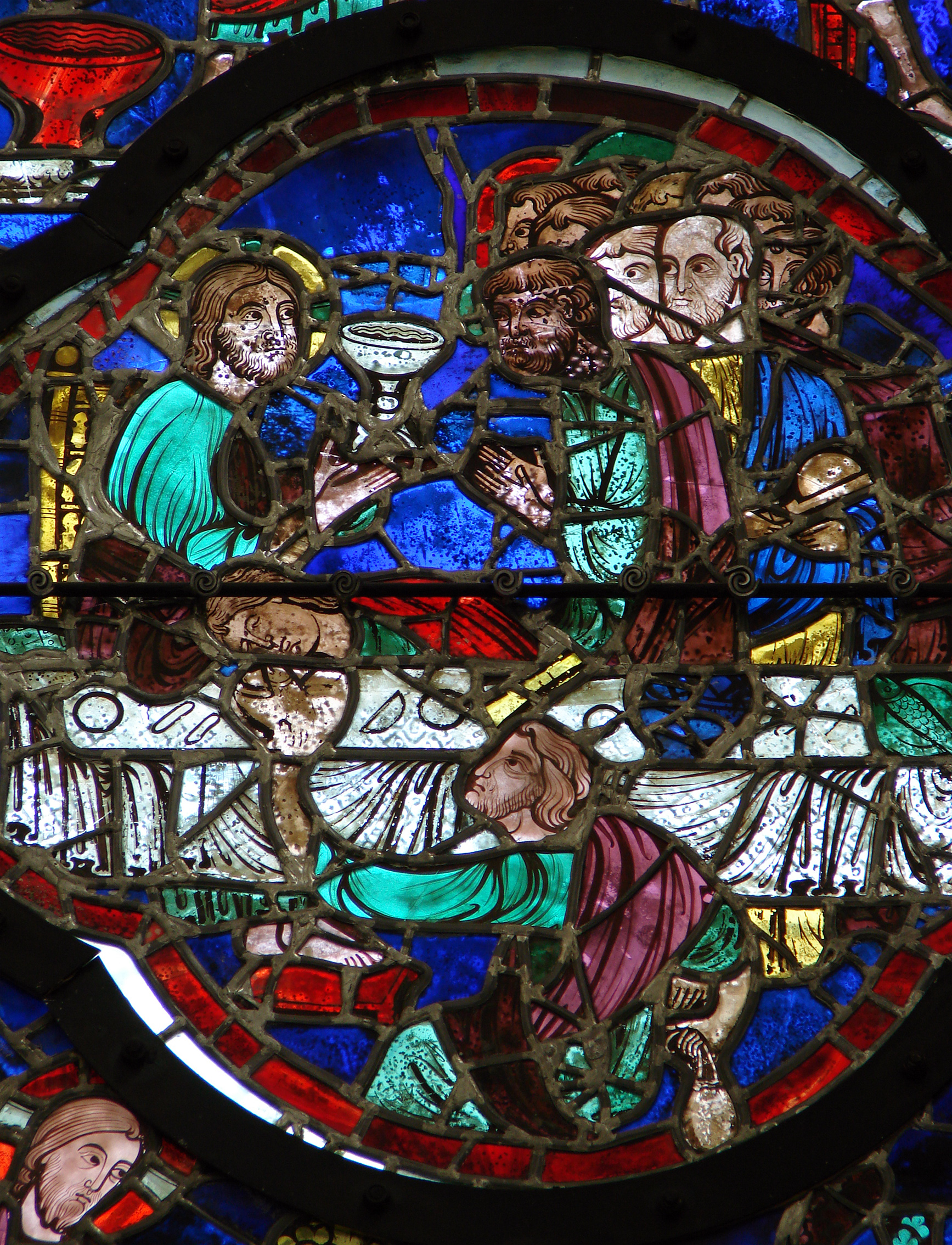Body and Blood of Christ Jesus (14 Jun 2009)
Ex 24. 3-8; Ps 116; Hb 9. 11-15; Mk 14. 12-16,22-26
Homily of Fr. Paul Panaretos, S.J.
Water-Jar Living
Ex 24. 3-8; Ps 116; Hb 9. 11-15; Mk 14. 12-16,22-26
Homily of Fr. Paul Panaretos, S.J.
Water-Jar Living
We consider the Sacrament of Jesus’ Body and Blood from many angles. His Body and Blood has shaped us in many ways and will continue to shape us differently and anew in our futures. This year in our annual festive celebration our scripture selections invite us to consider the Eucharist by noting covenant and remembering.
Very briefly about covenants: in the ancient Middle East a covenant was a relationship of unequals, the greater providing for the lesser partner. In return for protection or for use of water of an oasis, say, the one who offered privileges expected certain behavior as well as tribute in return. That’s the covenant-significance of the people’s acclamation to Moses, “All that the Lord has said, we will heed and do.”
Jesus’ entire ministry prepared and shaped his disciples to live their covenant with God more wholeheartedly. Loving God and loving others summarized covenant-living. Few words, which we know, challenge us all.
 At the end of his life, dining at their most sacred meal, Jesus transformed covenant by giving his disciples himself:
At the end of his life, dining at their most sacred meal, Jesus transformed covenant by giving his disciples himself:he took bread, said the blessing, broke it, gave it to them, and said, “Take it; this is my body.” Then he took a cup, gave thanks, and gave it to them, and they all drank from it. He said to them, “This is my blood of the covenant, which will be shed for many.”His phrase, blood of the covenant, would not have sounded at all strange to his disciples. Biblical covenants were ratified in blood. Blood normally evokes death in our minds, but not to the Semitic, and thus, Jesus’ mind! Jesus offered his disciples himself! Jesus, who transformed the covenant, asked his followers to remember him each time they broke bread and shared a blessing cup of wine.
Biblical—thus ancient Middle Eastern culture generally—biblical remembering was and is much richer than recall. Recall retrieves a fact, a face, a phone number: recall retrieves data. Ritual remembering—remembering in the context of a ceremony—makes present an event which occurred in the past. Our liturgical remembering is not recall.
Our liturgical remembering makes Jesus present in our midst and within our hearts. Distance disappears between us and Jesus & his first disciples, who ate with him his last Passover meal. Thus, covenant, the new covenant ratified in Jesus’ blood, emerges for us. It invites us to practice which Jesus taught, to more wholeheartedly and more freely honor God and respect and care for all people, especially those in need.
 That’s what the new covenant ratified in Jesus’ blood, his very blood we drink at his altar, invites us to do. Our longings to do that and to see others do that are themselves gracious gifts of our Creator and Redeemer! How well we know that those graced longings clash with other longings: to live more conveniently; not to be bothered; desiring to be the center of our universes. When that clash exists, when we feel it inside, when we’d rather not do the Christian thing because we’ll stand out or look odd: we will love God and others when we choose to do what may go against the culture’s tide.
That’s what the new covenant ratified in Jesus’ blood, his very blood we drink at his altar, invites us to do. Our longings to do that and to see others do that are themselves gracious gifts of our Creator and Redeemer! How well we know that those graced longings clash with other longings: to live more conveniently; not to be bothered; desiring to be the center of our universes. When that clash exists, when we feel it inside, when we’d rather not do the Christian thing because we’ll stand out or look odd: we will love God and others when we choose to do what may go against the culture’s tide.When Jesus sent two of his disciples to get things ready for their Passover meal and said to them,“Go into the city and a man will meet you, carrying a jar of water. Follow him,” they would not have missed him. Why? In that culture women ordinarily drew water and carried it in jugs from wells./1/ Will loving God and others always make us stand out like him? No, but at times it will. Will we usually feel it will make us stand out? Yes. That’s recalling our new covenant and being reshaped by it. When we do follow Jesus’ lead, we remember him and become his real presence wherever we are.
In your daily 15 minutes with Jesus this week, pause in the love of our Triune God. Ask the disciples who prepared the Passover to present you to Jesus to converse with him. Tell Jesus what moves you most about sharing his Body and Blood; then tell him how you desire to witness to his new covenant. Ask for his grace to live your desire with courage. Close by saying slowly the prayer Jesus taught us. When we say it we do not only recall God’s love and Jesus’ counsel about praising and forgiving. Each time we pray it we refashion ourselves into Jesus’ presence where we live, work and play.
______________
1. See Genesis 24.11.
___________________________________________
Wiki-image of the Last Supper is in the public domain. Wiki-image of water jar by Marie-Lan Nguyen is used according to the Creative Commons Attribution 2.5 license.
No comments:
Post a Comment